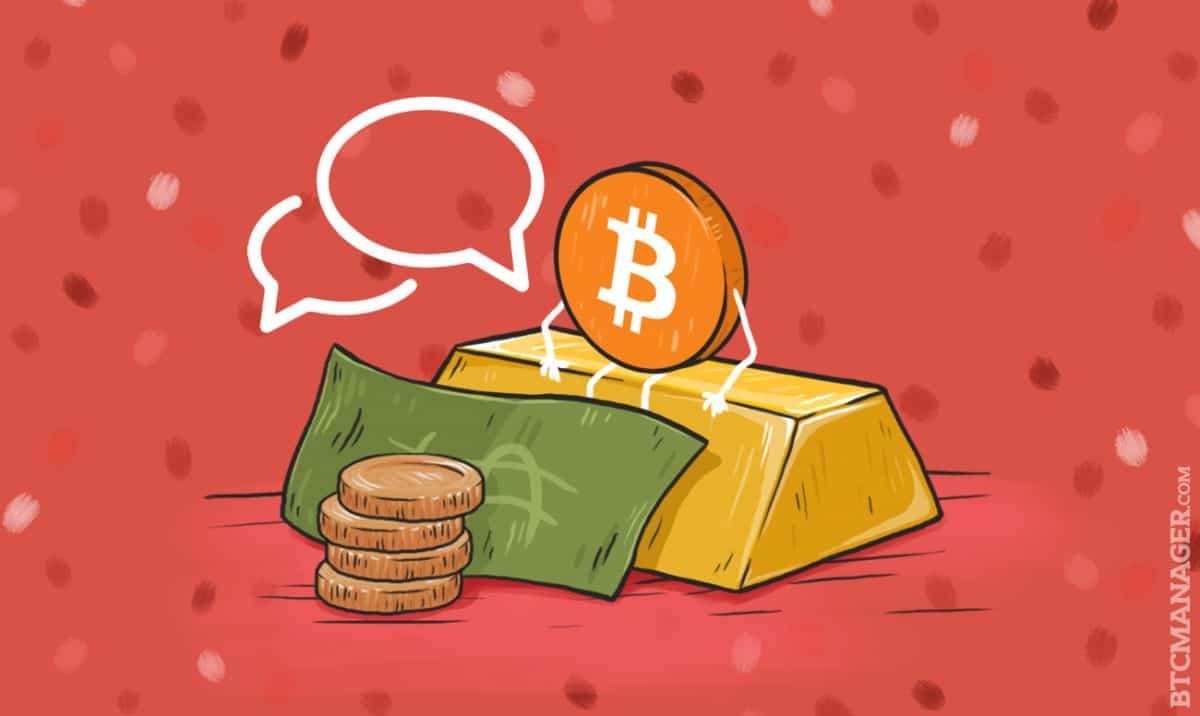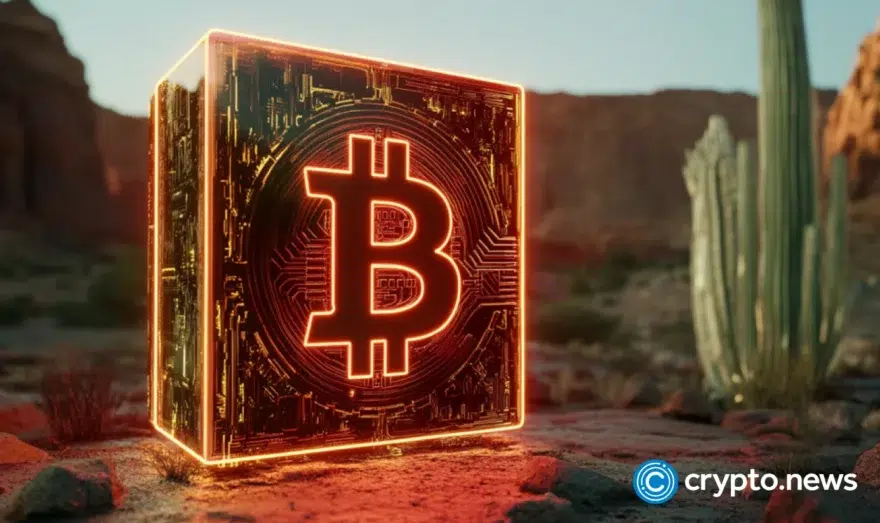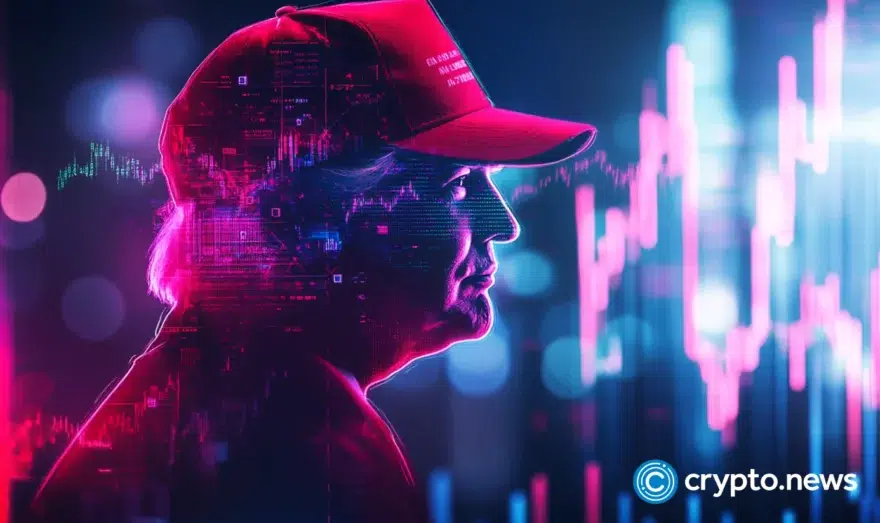The Economics of Bitcoin: A Conversation with Economist Ashe Whitener

Ashe Whitener loves discussing the intersection between monetary practices and personal freedom. As a fervent advocate of Austrian economics, he has amassed a unique take on bitcoin’s advancement into the currency mainstream. Known for his deep insights and contrarian flair, Whitener is particularly adept at unlocking the continually evolving synergies between bitcoin, fiat currency and precious metals.
For the past four years, Whitener has had the distinction of working for the famed economic forecaster and free-market advocate, Peter Schiff. Schiff is Chairman of Schiff Gold, CEO and Chief Global Strategist of Euro Pacific Capital, Inc, and host of The Peter Schiff Show. Whitener currently manages all B2B referral partnerships for Euro Pacific, a global network of over 600 corporate formation specialists, tax attorneys, trust advisors, and portfolio managers.
Whitener became acquainted with Peter and Euro Pacific Bank in 2011, later moving to the Caribbean to begin work there as a private banker, and now as Head of Business Development. Euro Pacific is known as a Rothbardian bank, a 100 percent reserve bank that does not make loans or risk any of its clients’ assets on deposit. Client money is held via overnight deposits in major overseas banks around the world.
A techie at heart with degrees in computer and engineering, Whitener cut his teeth in the worlds of computer programming, customer support and sales for 7 years before migrating into his current role with Euro-Pacific Bank.
From an idea that Whitener says surfaced from a night of fun and dancing in Panama, Liberty Entrepreneurs Podcast was birthed in 2015. With co-host Justin Blincoe, who has long been involved in the Bitcoin space, this show offers listeners provocative insights from guests like Roger Ver and Michael Perklin on building freedom through the entrepreneurial process. The mission of this podcast is heavily wedded to Whitener’s personal belief that freedom comes from building a business, not political action.
“Freedom is a personal journey just like the entrepreneurial process,” says Whitener.
Recently BTCMANAGER had the opportunity to talk with Whitener about his own journey into the world of bitcoin and how it intersects with a realm he is deeply familiar with: fiat money and precious metals.
What is the biggest thing you’ve learned about the banking world?
In 2013, we saw the Cyprus debt crisis which led to banks having to siphon off money from account holders. This act of robbery was one of the main reason I was attracted to Euro Pacific Bank. What I later came to discover is the adverse effect that the hierarchical structure of banking can have on clients. So even though Euro Pacific is not in the business of loaning out client money, these monies can still be loaned out through what are known as corresponding banks, which have ties to central banks. As a result banking institutions have almost no effect on preserving wealth
So how did that inform your view of cryptocurrencies?
While I was familiar with cryptocurrencies back in 2011, because my focus was on gold and silver, I didn’t give them much attention. But with what occurred in Cyprus in 2013, I quickly figured out that once you have money in a bank, you never really own it because it’s always on the asset sheet of multiple other financial institutions. Being bothered by this, I began exploring bitcoin and its ability to allow absolute ownership of a digital currency or good. That really kicked off not only my technical understanding of bitcoin but my economic and financial understanding and appreciation of cryptocurrencies in general.
Besides bitcoin, you believe that the growth of altcoins is a good thing?
I do. Coming from a very enriched Austrian Economics background I understood that not only is competing money very interesting but is also necessary and imperative in a free market. So frankly, I didn’t understand why bitcoiners back in 2013 and 2014 were saying that bitcoin can be everything and that we don’t need other forms of cryptocurrency. It’s here where I’ve always really appreciated the potential utility and the competitive nature of the altcoin.
It all comes down to my fundamental belief that good money runs out bad money in our economic system when you have a choice in the type of money you want to use. In other words, do we desire stable money or inflating dollars? So when we live in a culture or society where we do not have the freedom to choose the type of money we want to use, we find that bad money drives out good money because people don’t want to spend the good money that’s inherently more valuable.
Take the bitcoin debit card concept of spending for example. Why would you want to spend your good, most likely appreciating money when it makes more sense to spend your less valuable fiat or politically based money? Fiat money has never been a great preservation of wealth. Gold however has been as well as silver. And the same with tangible physical goods like housing and oil. But we’ll soon find out whether cryptocurrencies are a sustainable store of value. I expect they will be because they are limited in supply.
So what do you say to those who feel that bitcoins will ultimately replace money as the primary form of currency in our world?
I’ve harbored similar thoughts at one point in my own personal life. That’s the reason I can speak confidently about this in front of a bunch of foaming-mouth libertarians who believe that bitcoin is the end-all, be-all. There was a time in my life where it felt so blatantly obvious to me that gold and silver was going to take over and that governments would be forced to tie their national, politically based currencies back to these precious metal in order to maintain confidence in the money. But I came to realize that it’s simply not conceivable for us to just wake up one day and have the dollar collapse and have gold and silver as its replacements.
The same I believe holds true for bitcoin and cryptocurrencies. Sure, through bitcoin we’ve had some improvements in terms of the evolution of money. Not only have we seen changes security-wise and transparency-wise, but we’ve been able to build a bitcoin payment rail and mechanism. Nevertheless, my hesitation towards bitcoin is that I don’t want people to think that this is the end-all, be-all, that it’s going to allow us to take back control of money from governments with an alternative currency that allows us to survive and prosper. Rather I see it more practically as just one more great tool for bringing more freedom and peace to the world.
Peter Schiff is obviously a big name in the gold and silver world. What do you believe is his take on bitcoin?
Peter is very much a stock market and hard money guy with an obvious rich understanding of precious metals. In my opinion, he sees bitcoin as having value as a payment tool as well as in furthering a competitive free market economy. Nevertheless, because it is so highly volatile, I believe he views it as a risky investment with the potential to lose quite a bit of money. He has, however, started accepting bitcoin from customers at Shift Gold, a move which I think has gone quite well. And he has had prominent bitcoin advocate Erik Voorhees on his podcast show to discuss the continued emergence of cryptocurrency.
As the time of this writing, the price of bitcoin is again on an upward trajectory. What are your thoughts here?
Honestly, I believe the last thing we should try to concentrate on is the price of bitcoin or even ether because it’s something we have such little control over. I’ve always been a big proponent of only controlling what you can control and accepting what you can’t control.
What new, emergent ideas or innovations do you believe cryptocurrency enthusiasts should be keeping an eye on in the days and months ahead?
A few things: for starters, the functionality coming out of some of these altcoins. One example is Dash which has, in my opinion, a much more improved, nimble governance system than bitcoin and most other cryptocurrencies. I’ve actually met and interviewed Evan Duffield, the creator, and think that he has a really great thing going here.
Another is Ethereum, in terms of how the smart contracts will allow us to organize ourselves without a third-party deciding who’s right and who’s wrong. I see this same smart contract movement picking up steam in the bitcoin space as well with guys like Sergio Lerner, Diego Gutierrez Zaldivar at Rootstock and Gabriel Kurman at Koibanx taking the lead here.
I also think that the decentralized prediction firm Augur is really doing some interesting things. They are not public yet but are expected to be by the end of the year. Once Augur is in full gear we may actually be able to get our news and information in a decentralized way through the blockchain. Traditional news sources might not be needed anymore.
Anything else we should be paying close attention to?
Yes, the political side of all of this will be very interesting to watch. Specifically, where is bitcoin and blockchain technologies being embraced by the ruling elite as opposed to those nations where it is being shunned and people are getting in trouble for using it. We need to remain wise to the fact that in creating a new type of currency and store of value, governments will feel threatened by their loss of power over being able to control and manipulate currency.
What’s a place that, in your estimation, is particularly friendly toward bitcoin?
There is a number of them. One, in my estimation, is Panama. I’ve lived there for a long time and am a permanent resident. Governments and countries like this that embrace cryptocurrencies are going to have an amazing tool for creating prosperity and wealth for the unforeseen future, as opposed to places that are trying to imprison people for using a new technology. It’s one of the most amazing technologies ever created for generating wealth for their economy.
So what do you believe will be the significance of bitcoin over the long term?
It’s another example supporting the idea that free market should be in charge. As a strong advocate for Austrian economics, [I think] bitcoin has really helped me build the strength of my argument whenever I’m speaking to someone who may or may not understand why we should have free flowing money as opposed to governmental money. Bitcoin is a great means of transacting without being hindered by top down control. It strengthens the role of free markets and economic freedom a great deal.














